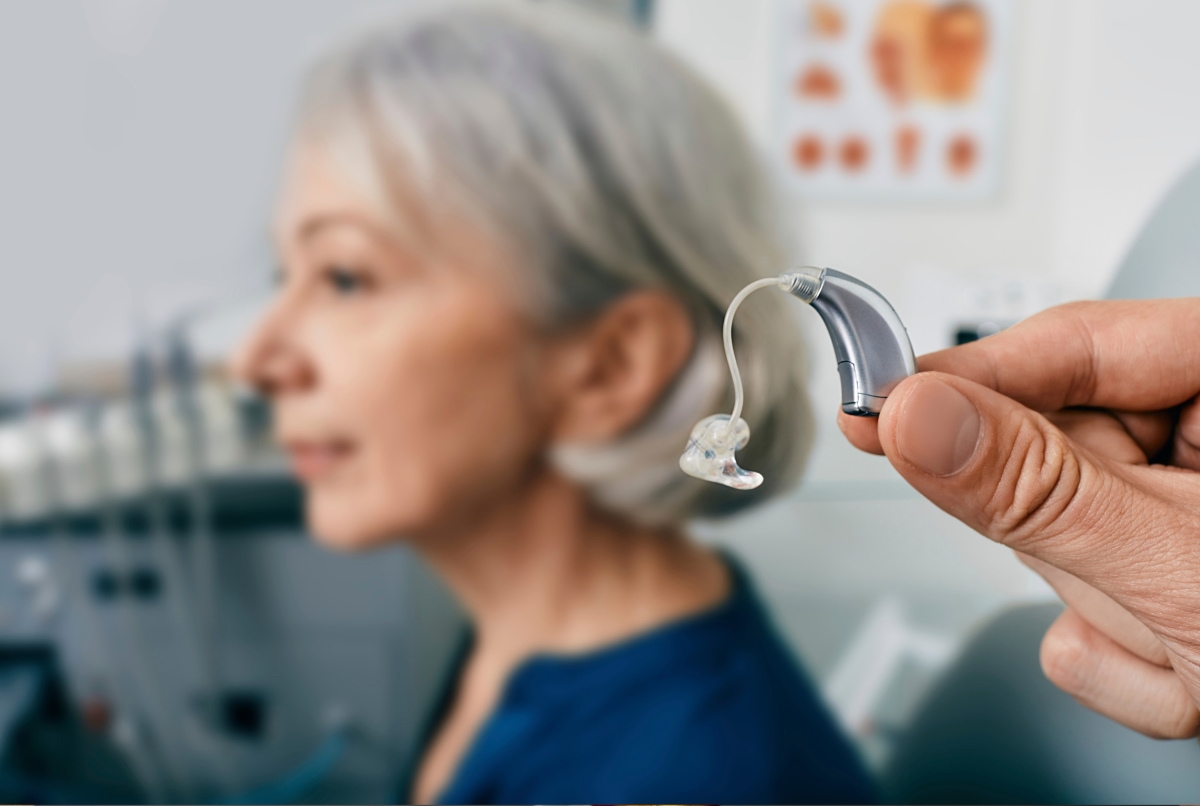
As we age, our bodies naturally undergo various changes, and two of the most noticeable are in our vision and hearing. While these changes are a normal part of aging, understanding them can help us adapt and maintain a high quality of life. This comprehensive guide will explore common age-related changes in vision and hearing and offer practical tips to help you manage these changes effectively.
Understanding Age-Related Changes in Vision

Vision changes are common as we age. Here’s a closer look at some prevalent issues and what they mean:
- Presbyopia: Presbyopia is a condition in which the eye’s lens loses its flexibility, making it difficult to focus on close objects. This typically starts becoming noticeable in your 40s and progresses with time. You might find yourself needing reading glasses or bifocals as you age.
- Cataracts: Cataracts occur when the eye’s lens becomes cloudy, leading to blurred vision, glare, and difficulty seeing in low-light conditions. They develop slowly and can often be managed effectively with surgery, one of the most common and successful eye surgeries.
- Macular Degeneration: Age-related macular degeneration (AMD) affects the macula, the central part of the retina responsible for detailed vision. AMD can cause central vision loss, making reading or recognizing faces challenging. There are two forms of AMD: dry and wet. Dry AMD progresses slowly, while wet AMD can lead to more rapid vision loss and may require more aggressive treatments.
- Glaucoma: Glaucoma is a group of eye conditions that damage the optic nerve, often due to increased intraocular pressure. It typically develops slowly without symptoms in its early stages, making regular eye exams essential. If untreated, glaucoma can lead to irreversible vision loss.
- Diabetic Retinopathy: For individuals with diabetes, high blood sugar levels can damage the blood vessels in the retina, leading to diabetic retinopathy. This condition can cause visual disturbances and, in severe cases, vision loss. Managing diabetes effectively is crucial for preventing this complication.
Tips for Adapting to Vision Changes:
- Schedule Regular Eye Exams: Regular check-ups with an optometrist or ophthalmologist can help detect problems early and update your prescription. Early detection can prevent many vision issues from worsening.
- Optimize Lighting: Good lighting reduces eye strain and improves visibility. Use brighter bulbs in frequently used areas and consider task lighting for activities like reading or crafting.
- Protect Your Eyes: Sunglasses blocking UV rays can protect your eyes from sun damage, contributing to cataracts and macular degeneration. Wearing protective eyewear during activities that pose a risk of eye injury is also important.
- Consider Vision Aids: Magnifiers, large-print books, and digital reading aids can enhance your ability to see clearly. Talking devices and screen readers can provide significant assistance for those with more severe vision loss.
- Maintain a Healthy Diet: A diet rich in antioxidants, vitamins, and minerals can support eye health. Foods high in vitamins A, C, and E and zinc and omega-3 fatty acids are particularly beneficial for maintaining vision.
- Stay Active: Regular physical activity promotes overall health and can improve blood flow to your eyes, which may help prevent or slow the progression of certain eye conditions.
Understanding Age-Related Changes in Hearing

Hearing loss is another common change associated with aging. Here’s what you might experience:
- Presbycusis: Presbycusis is age-related hearing loss that typically affects high-frequency sounds. It can make it difficult to hear certain consonants, which can impact speech understanding. This gradual loss of hearing can be particularly noticeable in noisy environments.
- Tinnitus: Tinnitus is the perception of ringing, buzzing, or hissing sounds in the ears without an external source. It can be a frustrating symptom that often accompanies age-related hearing loss but can sometimes be managed with therapies and sound masking techniques.
- Hearing Loss Due to Medications: Some medications, especially certain antibiotics and chemotherapy drugs, can cause or exacerbate hearing loss. If you notice changes in your hearing after starting a new medication, discuss it with your healthcare provider.
Tips for Adapting to Hearing Changes:
- Get a Hearing Test: Regular hearing evaluations by an audiologist can help identify hearing loss early and determine the appropriate treatment. Hearing tests can also help differentiate between types of hearing loss and tailor solutions to your needs.
- Explore Hearing Aids: Hearing aids can significantly enhance your ability to hear and understand speech. Modern hearing aids have advanced features such as noise reduction, directional microphones, and Bluetooth connectivity, which can improve hearing in various environments.
- Utilize Assistive Listening Devices: Devices like amplified phones, TV listening systems, and personal amplifiers can help you hear better in specific situations. These devices can be particularly useful for watching TV, using the phone, or attending social events.
- Improve Communication Strategies: Let people know about your hearing loss so they can speak more clearly and face you during conversations. It’s also helpful to find quiet places for discussions and ask for repetition or clarification if needed.
- Engage in Social Activities: Staying socially active can help you practice and refine communication strategies. Engaging in enjoyable activities can also provide a sense of fulfillment and help reduce feelings of isolation.
- Practice Good Ear Health: Avoid exposing your ears to loud noises, which can further damage hearing. Use ear protection in noisy environments and maintain ear hygiene to prevent infections and blockages.
Maintaining a Positive Outlook

Moving through age-related changes in vision and hearing can be challenging, but maintaining a positive outlook and proactive approach can significantly enhance your quality of life. Embrace these changes confidently and focus on what you can do to adapt.
Stay Informed and Educated: Keeping yourself informed about age-related changes in vision and hearing empowers you to make informed decisions about your health and well-being. By understanding the conditions and available treatments, you can take proactive steps to manage these changes effectively.
Seek Support When Needed: Don’t hesitate to seek support from healthcare professionals, family, and friends. Professional guidance can help you navigate treatment options and adapt to new ways of managing vision and hearing challenges.
Conclusion
In conclusion, while age-related changes in vision and hearing are a normal part of growing older, they don’t have to limit your enjoyment of life. By staying informed, using available tools and strategies, and seeking regular medical care, you can continue to lead a fulfilling and active life. Embrace these changes with a positive attitude, and remember that support is available to help you adapt and thrive.





